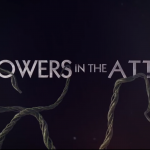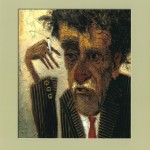Each week in Eat Your Vegetables, Jonathan Sircy shares the benefit and appeal of some more high-brow culture we should be consuming.
High-Culture Vegetable of the Week: John Milton’s Paradise Lost
Actual Vegetable Equivalent: The best garden salad you’ve ever tasted…served in a bowl the size of the universe
Nutritional Value: an anti-oxidant that will either answer your questions about God’s ways toward men or so overwhelm you that you drop the questions and simply proceed on faith that God knows what He’s doing
Recommended Serving Size: Books I–IV
Christ and pop culture lovers should know that John Milton is more than that scenery-chewing Al Pacino character in The Devil’s Advocate and Paradise Lost is more than a current movie project possibly starring the demonically coiffed Bradley Cooper. Paradise Lost is the greatest epic in the English language, John Milton’s seventeenth-century poem about the fall of man, and if you haven’t read it, you should. As one eulogist put it, to peruse Paradise Lost is to encounter “the story of all things.”
Are you drawn to sheer artistic chutzpah? Before the poem is thirty lines old, Milton says his “adventurous song” will pursue “things unattempted yet in prose or rhyme” (16). Are you dedicated to Christian art? Milton’s epic intends to do nothing less than “justify the ways of God to men” (26).
Long considered the pinnacle of poetic genres, an epic is a grand story told in a grand style about a grand hero who, in his/her actions, represents an entire race or people. Milton intends to, and often does, exceed his fellow epic poets: Homer, Virgil, Dante, and Spenser. Milton’s story is not just one grand story among others. It is the story of humanity: the fall. Its style is suitably grand, and its chief character represents not just one race or nation but all people.
For cultural analysts, Milton’s poem presents both an object of and model for study. The poem reads like an index to the best writing of western civilization, and he leaves no epic precursor unrevised. For example, look at the way Milton reframes the heavenly council in PL’s Book III, systematically rewriting Book IV of The Iliad, Book I of The Odyssey, and Book X of The Aeneid.
More than that, Milton provides readers with a template for cultural criticism. As he catalogues Satan’s minions in Book I, Milton briefly summarizes the stories the ancients told about Mulciber, a particularly beautiful fallen angel. He concludes with this commentary:
thus they relate,
Erring; for [Mulciber] with this rebellious rout
Fell long before; nor aught avail’d him now
To have built in Heav’n high Towrs; nor did he scape
By all his Engins, but was headlong sent
With his industrious crew to build in hell. (746–751)
This is a clear and concise model for Christian cultural criticism. We might call it Milton on Olympos, a counterpart to Paul on Areopagus. The great myths of Western literature are distortions of true spiritual history.
Some concluding tips:
Read the poem aloud. Because of his blindness, Milton orally dictated much of the poem to his daughters, and the poem’s blank verse is spellbinding.
Skim the poem’s first four books. You’ll visit Milton’s hell, heaven, and earth, in that order. Milton’s Satan, the chief character of Books I and II, has fascinated readers for over 300 years. When Milton travels to heaven, he doesn’t shy away from representing God, and the conversation between the Father and Son is revelatory. When Milton finally makes it to earth in Book IV, he gives Eve a detailed origin narrative, providing the mother of all mankind with her own voice.










